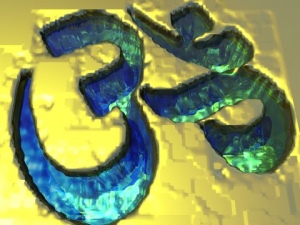Sacred Texts
Hinduism

|
Brahma-Knowledge
by L. D. Barnett
[1911]
|
Contents
Start Reading
Page Index
Text [Zipped]
This book, part of the
Wisdom of the East
series, is a short exposition of the Vedanta philosophy.
The 'Brahma' of the title is not the Hindu god Brahmā, but the
abstract, primordial spirit of creation.
Barnett draws from the Upanishads, the writings of Shankara,
and other literature, and sees parallels with the
Greek Eleatic philosophers, particularly Parmenides.
Title Page
Table of Contents
Editorial Note
Introduction
Part I
Vedanta, The Vedas' End
The Four Vedas
The Upanishads
Foundations of Upanishadic Ideas
Brahma and Prana
Doctrine of Transmigration and Works
Atma, Self or Spirit
Upanishadic Principals
Origin of the Universe from Brahma
Brahma is Absolute Being
Brahma is Thought
Brahma is Atma
Brahma is Incogitable
Parmenides
Phases of the Self
Maya
Relation of Universal to Individual Soul
Organism of Soul
The Subtle Body
Karma
Freedom of Will
God
Brahma the Destroyer
Salvation
The After Life
Part II. Some Texts of the Vendanta
I. Creation
II: Who am I?
III: The World Within
IV: The Infinite I
V: Know Thy Self
VI: Parables
VII: The Soul in Sleep
VII: Gargi and Yajnavalkya
IX: The Everlasting Nay
X: The Spirit Within
XI: The Wisdom of Raikva
XII: Satyakama
XIII: Light and Darkness
XIV: The False and the True
XV: Gloria in Excelsis
XVI: The Advaita-Makaranda of Lakshmidara
Appendix I: The Sambandhas
Appendix II: List of the Chief Upanishads
Bibliography
Advertisements

